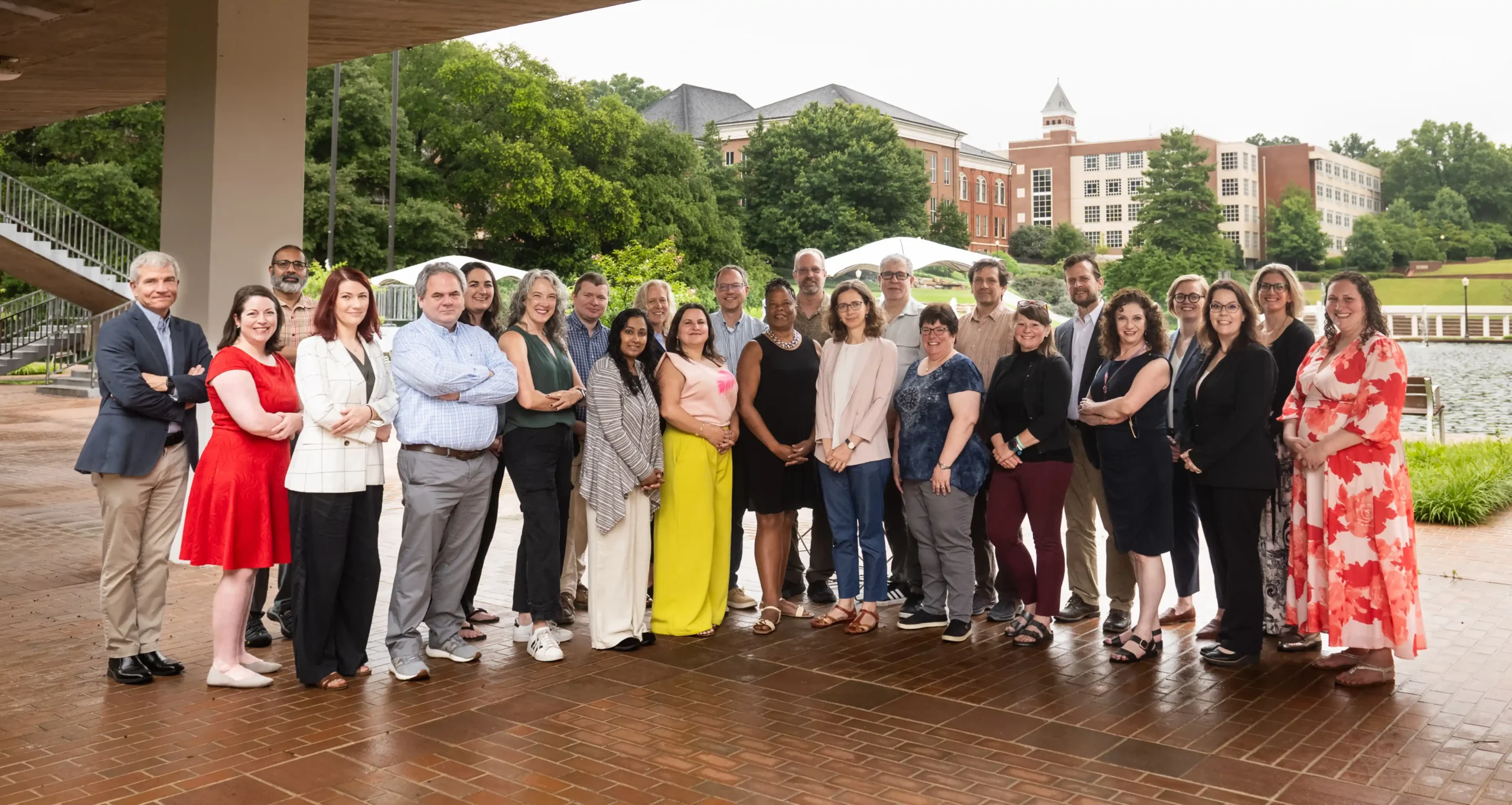IAC’s Weaver selected to participate in Clemson University’s Civic Engagement and Voting Rights Teacher Scholar Program

Dr. Frankie Nicole Weaver, educational outreach programs manager for the University of Tennessee’s Institute of American Civics (IAC) housed at the Howard H. Baker Jr School of Public Policy and Public Affairs, was selected to join the second cohort of Clemson University’s Civic Engagement and Voting Rights Teacher Scholar Program.
The program serves as an avenue for faculty from across the country to work together to create classroom teaching materials – by faculty, for faculty – to support a thriving American democracy. Funded through a three-year grant from the Andrew W. Mellon Foundation, the Teacher Scholars are recruited and supported from across the nation to work in cross-institutional, cross-disciplinary, humanities and arts-based faculty learning communities (FLCs). The Teacher Scholars design, create, and disseminate pedagogical materials for use in college courses nationwide. The Teacher Scholars are responsible for creating educational resources, such as activities, lessons, or assignments, that will be peer-reviewed, published, and shared as open resources for college and university use. The resources can range across disciplines but revolve around voting rights, civic engagement, civic education, and promoting democracy.
Dr. Patricia Rutenberg, a distinguished lecturer in the University of Tennessee, Knoxville Department of History, is a part of the program’s first cohort and recently published her educational resources. Rutenberg collaborated with the Baker School for her resources by having her public history students complete a curatorial project reviewing archival photographs and materials that were displayed during the Baker School grand opening and dedication celebration. The exhibit honored the school’s namesake Howard H. Baker Jr., a celebrated public servant. Rutenberg’s experience encouraged Weaver to apply for the program’s second cohort.
Weaver joined 23 other Teacher Scholars from institutions across the country in the program’s second cohort which kicked off with the 2024 Summer Institute in June. Each Teacher Scholar will virtually attend and participate in a year-long FLC of eight teacher scholars, that will meet regularly through May 2025. The Summer Institute provided a deep dive into designing, creating, and sharing pedagogical materials for college courses nationwide. Additionally, members for the program’s first cohort shared their resources and experiences.
“This program’s mission aligns beautifully with our university’s land-grant mission, the Baker School of Public Policy and Public Affairs’ educational outreach goals tied to serving educators and youth, and the Institute of American Civics’ mandate to strengthen civic education, revive civil discourse, and renew civic engagement,” Weaver said. “I’m thrilled to have been selected and excited to work with my faculty learning community colleagues in producing innovative, creative educational materials as well as studying their impact.”
Weaver is a historian who completed her doctoral studies at the University at Buffalo. She directs the IAC’s K-12 outreach efforts which includes the Tennessee Civics Academy annual conference and numerous other opportunities including developing K-16 lesson plans and professional development programs. She said she was drawn to apply to become Teacher Scholar because there is an understanding among the participants and directors that civic education matters, and this program is working to ensure that younger generations get involved.
Through the program, Weaver is developing resources that will tie to civic engagement and voting rights through applied theater including mock trials, mock city council meetings and more. The resources will show how civic theater can be used as a vehicle for education and to get students excited about engaging civically.
Weaver and three other Teacher Scholars have been asked to present at the National Association for Undergraduate Education at Research Universities (UERU) conference in Washington, D.C. on behalf of the program. The panel discussion will emphasize the significance of instructors supporting one another in the creation of innovative and student-focused civic educational materials.
Clemson University’s Civic Engagement and Voting Rights Teacher Scholar Program is led Dr. James Burns, director of the Humanities Hub at Clemson University and professor in history, and Dr. Bridget Trogden, dean of undergraduate education and professor in the School of Education at American University. It is supported via collaborations throughout civic, democratic and voting rights networks, and especially by the Curriculum and Scholarship Subcommittee of the Faculty Network for Student Voting Rights.